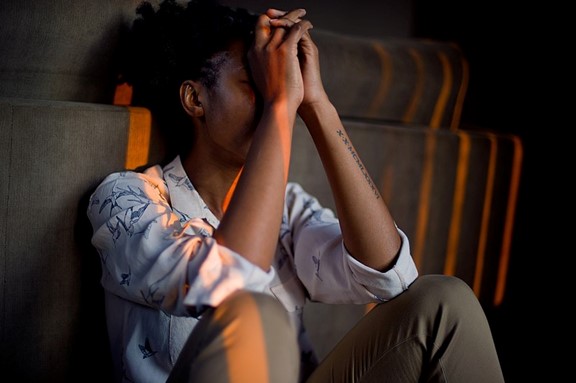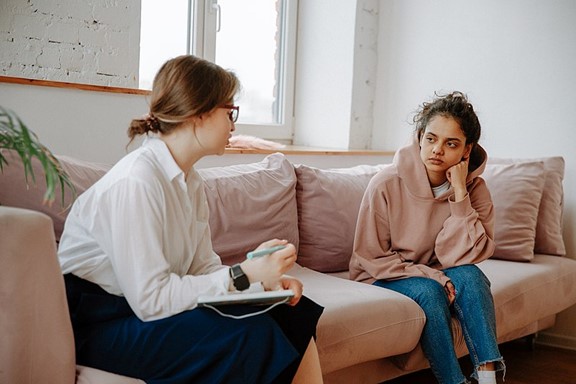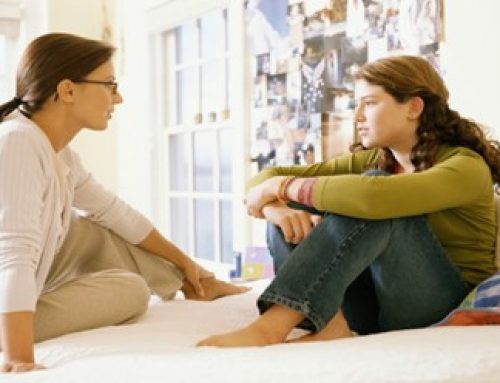Please Note: The names of the clients have been changed to protect their privacy and confidentiality.
During a regular follow-up with my 17-year-old client, Lily, she was thrilled to inform me that against all the odds of the lockdown, she had matched with, and fallen for, an older guy, Jack, on a dating app. She exclaimed that this was her first “real relationship”.
Even though her parents had firm expectations around COVID-19 precautions, Lily was determined to spend time with her new boyfriend. To do this, she created a plan with her neighbourhood friend to gradually expand their pandemic bubble, which involved a trust-building process with her parents to permit her to spend extended time over at this friend’s home. To accommodate her parents, Lily agreed to always wear her mask and bring her own food over to her friend’s home. In reality, Lily’s plan was to arrange for her boyfriend to pick her up from this friend’s home so she could spend time with him.

This situation is incredibly challenging for a girl who is exploring her independence during a pivotal stage of her development. Lily was not one to typically disobey her caregivers or defy their expectations. Lily’s parents were so fearful of the virus that they were doing everything they could to limit their children from possible exposure.
Lily longed to tell her mother about the boy she was dating, but she feared that informing her parents would doom the relationship. Furthermore, she did not want to increase her mother’s already heightened anxiety levels related to the spread of the virus. For many caregivers, vulnerabilities to anxiety and mental health issues have been exacerbated due to the risks around COVID-19. The “bubble” effect of social distancing has persisted as the virus has taken on new strains. This effect has resulted in the presentation of challenging behaviours in young individuals that might not otherwise be as prevalent. For instance, the heightened paranoia of caregivers has influenced many teenagers to err on the side of limiting information sharing and has resulted in increased secrecy in communication with authoritative figures. This paranoia, and the secrecy that results from it, have reinforced maladaptive communication patterns during a time when autonomy is a driving motivation in a young individual’s life.

Despite the risks involved, Lily longed for connection. This yearning was exacerbated by the loneliness she felt due to the lack of overall social interaction. She was attending school from home. Her school’s prom and graduation programs were cancelled. She could not attend her extracurricular activities, and she had not seen many of her friends and extended family for months.
This brings me to a part of our therapy session:
Therapist: “Lily, I want to respectfully ask you if you are being safe with your boyfriend.”
Lily: “Of course, I am taking as much precaution as possible. I have hand sanitizer on me at all times. We don’t go to the mall or to restaurants. We wouldn’t dare to go to the movies.”
Therapist: “But Lily, are you and Jack using protection?”
Lily: “Oh, of course. We wear masks all the time!”
Therapist: “I mean protection against sexually transmitted diseases?”
Lily: “Oh. Well, we are being safe with everything except for that.”
Therapist: “Lily, have you spoken to your GP?”
Lily: “How am I supposed to do this when my mom schedules my appointments? I can’t even drive to the pharmacy because I wasn’t able to get my license this year, and don’t even get me started on my allowance…”
This exchange was alarming because it reinforced that, despite working tirelessly to implement protective measures against COVID-19, we have neglected the importance of educating our youth about safe sex. In a time when young individuals have been present with their parents, it seems these important teachings may have fallen by the wayside. Sexual Education is a mandatory course in our high school curriculums; however, with the pivot to virtual learning, it has become difficult for students to manage their coursework. As a result, consolidating the information about each virtual subject including Sexual Education has become increasingly challenging. Meanwhile, their access to technology has increased due to the numerous social limitations outside of the home and the addition of virtual learning. The reliance on social media platforms and technology (i.e., Tiktok, Instagram, etc.) is another issue that has contributed to increased exposure for young individuals to sexualized content.

This therapy session served as a reminder for caregivers to reinforce the importance of safe sex among their children. Parents must be aware that youth will continue to seek opportunities to expand their social networks, even when there are health risks involved. After all, the yearning for connection is stronger than ever. Lily is one client who represents a cohort of young individuals, many of whom are trying to navigate social pressures in a very isolating time. We must remind our youth to protect themselves from sexually transmitted diseases, as well as COVID-19. We must ensure that young individuals are aware that PPE is only one of many forms of protection.
Resources to help caregivers navigate these conversations:
The Ontario website for Sexual Health is informative and inclusive. This could be a resource to share with your children or to explore together: https://sexualhealthontario.ca/
Ontario also has many sexual health clinics that provide a wide variety of information such as free condoms, birth control counselling and STI testing and treatment: https://sexualhealthontario.ca/en/find-clinic
Planned Parenthood has a fantastic article about how to talk to kids about sex and relationships: https://www.plannedparenthood.org/learn/parents/tips-talking






